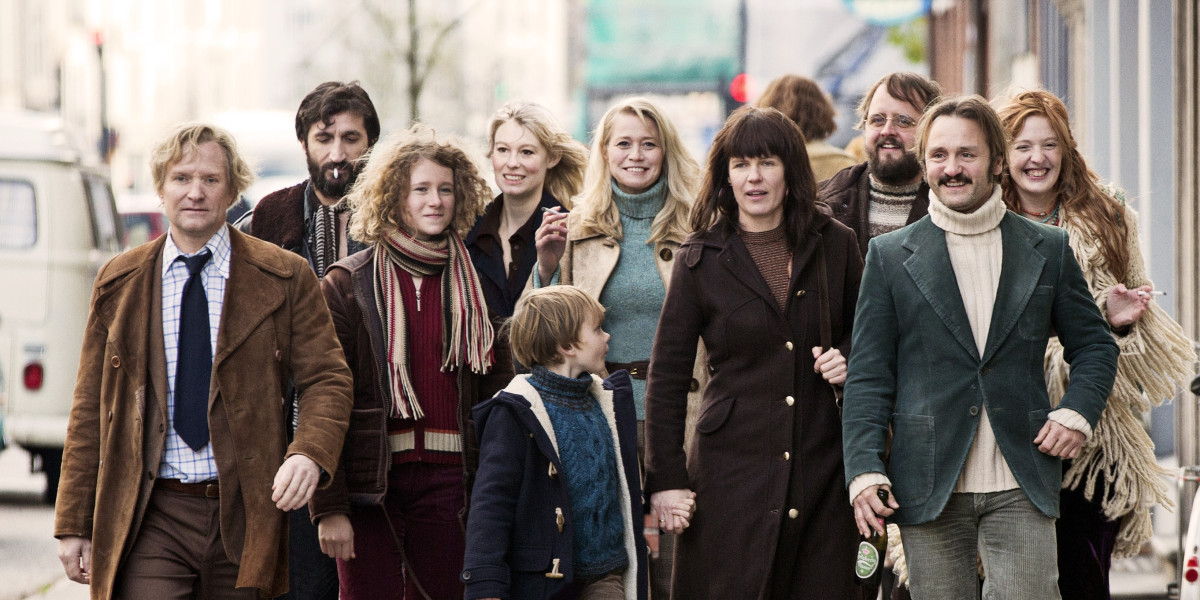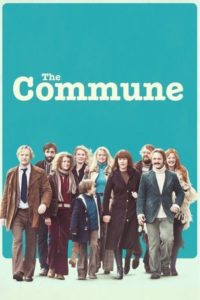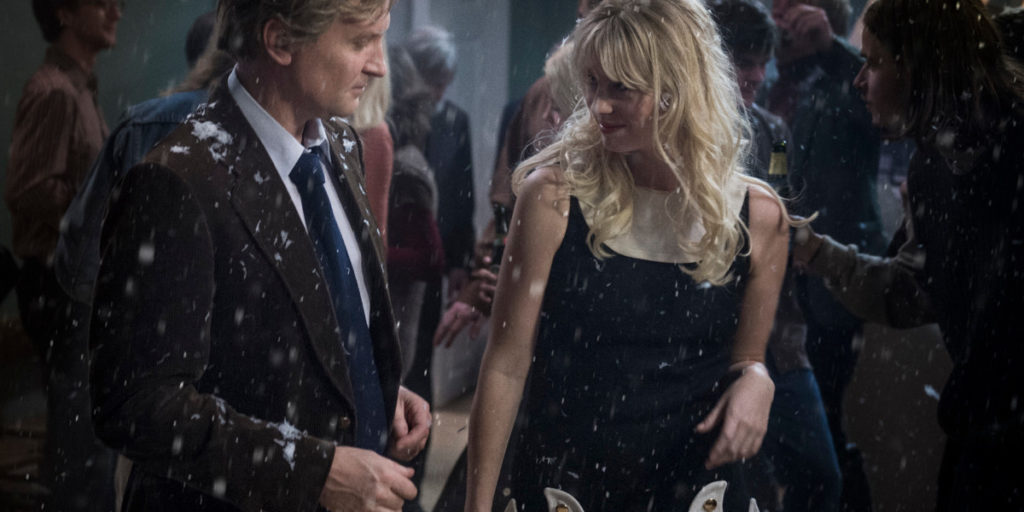
The Commune Review
Director: Thomas Vinterberg
Starring: Ulrich Thomsen, Trine Dyrholm, Lars Ranthe, Fares Fares
Writer: Thomas Vinterberg, Tobias Lindholm
A review by Michael Walls-Kelly

Exploring the ins and outs of a commune seems like a great idea for a movie. A small, close-knit group of people, living together, making decisions as a group, and having to deal with the wide range of personalities and emotions inherent in a setting like that. It’s a microcosm of society as a whole, and its fertile grounds for lots of themes and character exploration.
Unfortunately, The Commune isn’t that.
Thomas Vinterberg is a great director. His work has received spotty a claim, but I count myself a fan. Almost everyone agrees that 1998’s The Celebration is great, but I also appreciate the much more out there and on-the-nose Vinterberg who directed 2005’s Dear Wendy. Regardless, he’s had a slight “comeback” recently with duel critical successes of The Hunt and Far From the Madding Crowd. The Commune ended up being a small step back from those, but still a worthy addition to Vinterberg’s filmography.
As I said, what brings this film down a notch is the fact that it doesn’t fully explore the promise of its title. It’s as if the idea came to Vinterberg and then he became more interested in zooming in and dissecting a specific marriage. That wouldn’t be a problem if those scenes felt more original. Or, at least more interesting than the scenes directly dealing with the commune itself.
Erik (Ulrich Thomsen) inherits a large house that he and his wife Anna (Trine Dyrholm) can’t afford and plan to sell. Anna suggests turning it into a commune. They, along with their daughter, Freja (Martha Sofie Wallstrøm Hansen), invite their friend Ole (Lars Ranthe) and a collection of other friends and like-minded individuals to move in. They share the costs, responsibilities, and choices that a family and community have to make. This decision creates fissures in their relationship or widens those that were already there. Erik eventually has an affair with Emma (Helene Reingaard Neumann) and ultimately invites her to live at the commune.
The problem with that premise is that the film can’t pick a point of view. More importantly, the film decided to focus on the less interesting and original premise. I’ve seen a lot of dramas about failed marriages and divorced couples. Despite the commendable efforts of Thomsen and Dyrholm, their storyline rarely rises above that. Any time it threatens to — like an extended sequence close to the end that focuses on a stressed out Anna slowly breaking down — it then shifts to a different point of view and leaves us feeling slightly detached. At first, it seems like Erik will be our entry point, as he’s the most reticent to start to commune. By the end, we’ve shifted between Erik, Anna, and Freja regularly. There isn’t anything strong enough in their individual stories to lock us down.
That’s where the actual commune scenes are a breath of fresh air. The film is punctuated with a number of dinner table meetings, and discussions between the members of the commune. They’re easily the best scenes in the film. The discussions about the house’s finances or who’s allowed to do what and when may seem like useless minutiae but, with the right cast, it ended up being captivated.

The issue may have been novelty. I’ve seen movies about bored, upper-middle-class white teachers having affairs with their students. I’ve seen movies about marriages falling apart. I haven’t seen many films about a commune. The fall out of their relationship takes place within the commune, but it always feels like a side-note or a commentary on the story Vinterberg felt like telling: the story of Erik and Anna. If their story were more original, I would agree with him.
Thomsen and Dyrholm give fantastic performances, both nuanced immediately recognizable. Dyrholm, in particular, deserves credit for carrying most of the third act. There’s a moment late in the film involving two hands clasping across a dinner table which was a surprisingly affecting image. It shows how small moments and good actors are relied on to sell an emotion. I just wish Vinterberg had steered towards the more interesting options.
Verdict:
This time, it’s a mixed back. See it if you like Danish relationship dramas or are a Thomas Vinterberg completionist, skip it if you’ve seen the plot before or expect a more in-depth exploration of a commune. The performances in the film are unimpeachable. You’ll leave wishing you’d spent more time with the members of the commune. Whether that’s good or bad is totally up to you.
The Commune is available now on VOD. Get it on iTunes, Amazon Video, Vudu and more.

![[REVIEW] RET:CON #1 IS A DYSTOPIAN TIME-TRAVEL THRILLER](https://geekd-out.com/wp-content/uploads/2019/05/04fb500da54cd680c839fca1ea394ec6_original-150x150.jpg)
![[PODCAST] THE COMICS AGENDA: THE BEST COMICS OF 2021, PLUS MOON KNIGHT](https://geekd-out.com/wp-content/uploads/2017/11/comics-agenda-2-150x150.jpg)
